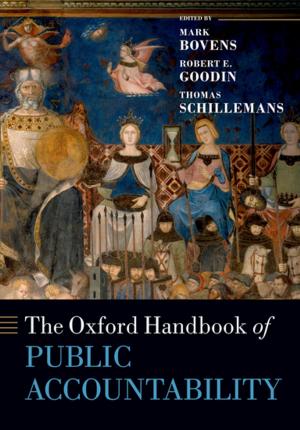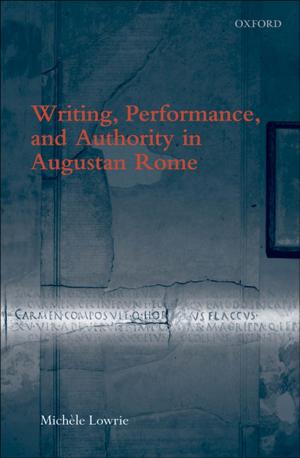The Literature Police
Apartheid Censorship and Its Cultural Consequences
Fiction & Literature, Literary Theory & Criticism, African, Nonfiction, Social & Cultural Studies, Social Science| Author: | Peter D. McDonald | ISBN: | 9780191615436 |
| Publisher: | OUP Oxford | Publication: | October 14, 2010 |
| Imprint: | OUP Oxford | Language: | English |
| Author: | Peter D. McDonald |
| ISBN: | 9780191615436 |
| Publisher: | OUP Oxford |
| Publication: | October 14, 2010 |
| Imprint: | OUP Oxford |
| Language: | English |
'Censorship may have to do with literature', Nadine Gordimer once said, 'but literature has nothing whatever to do with censorship.' As the history of many repressive regimes shows, this vital borderline has seldom been so clearly demarcated. Just how murky it can sometimes be is compellingly exemplified in the case of apartheid South Africa. For reasons that were neither obvious nor historically inevitable, the apartheid censors were not only the agents of the white minority government's repressive anxieties about the medium of print. They were also officially-certified guardians of the literary. This book is centrally about the often unpredictable cultural consequences of this paradoxical situation. Peter D. McDonald brings to light a wealth of new evidence - from the once secret archives of the censorship bureaucracy, from the records of resistance publishers and writers' groups both in the country and abroad - and uses extensive oral testimony. He tells the strangely tangled stories of censorship and literature in apartheid South Africa and, in the process, uncovers an extraordinarily complex web of cultural connections linking Europe and Africa, East and West. The Literature Police affords a unique perspective on one of the most anachronistic, exploitative, and racist modern states of the post-war era, and on some of the many forms of cultural resistance it inspired. It also raises urgent questions about how we understand the category of the literary in today's globalized, intercultural world.
'Censorship may have to do with literature', Nadine Gordimer once said, 'but literature has nothing whatever to do with censorship.' As the history of many repressive regimes shows, this vital borderline has seldom been so clearly demarcated. Just how murky it can sometimes be is compellingly exemplified in the case of apartheid South Africa. For reasons that were neither obvious nor historically inevitable, the apartheid censors were not only the agents of the white minority government's repressive anxieties about the medium of print. They were also officially-certified guardians of the literary. This book is centrally about the often unpredictable cultural consequences of this paradoxical situation. Peter D. McDonald brings to light a wealth of new evidence - from the once secret archives of the censorship bureaucracy, from the records of resistance publishers and writers' groups both in the country and abroad - and uses extensive oral testimony. He tells the strangely tangled stories of censorship and literature in apartheid South Africa and, in the process, uncovers an extraordinarily complex web of cultural connections linking Europe and Africa, East and West. The Literature Police affords a unique perspective on one of the most anachronistic, exploitative, and racist modern states of the post-war era, and on some of the many forms of cultural resistance it inspired. It also raises urgent questions about how we understand the category of the literary in today's globalized, intercultural world.















